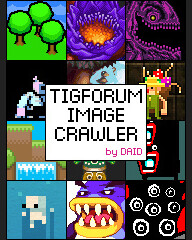Jonathan Blow Interview: “No Compromises”
By: Derek Yu
On: September 3rd, 2008
Matthew Boyd (Three Panel Soul), who interviewed Tarn Adams for Kwanzoo.com about a month ago, just did another, shorter, interview with Jonathan Blow, where they discuss Braid, Microsoft, and the nature of being an independent developer.
I feel like there is enough compromise in the game industry. Everyone compromises on everything all the time. If I want to make something different, that really stands out, then a good way to do that is to not compromise. Plus, compromise does not suit my personality very well. It tastes bad.
In the past, I’ve noticed that before Braid was released, some people have took issue with Jon being vocal about his opinions regarding the games industry and the development process. Has that changed at all for you guys?
In any case, I’m digging these interviews. Keep ’em up, Matt!
-
Lyx
-
Kongming
-
Kobel
-
Jenga
-
Kongming
-
corpus
-
http://www.getmagi.com TeeGee
-
moi
-
moi again
-
moi
-
rodnonymous
-
Kobel
-
http://www.indiebird.com Alex Vostrov
-
Paul Eres
-
http://www.sinisterdesign.net Craig Stern
-
Paul Eres
-
Paul Eres
-
moi
-
http://www.mawsoft.com/blog/ Impossible
-
http://www.sinisterdesign.net Craig Stern
-
Paul Eres
-
Derek
-
http://www.mawsoft.com/blog/ Impossible
-
Rampancy
-
Critic
-
Kobel
-
Paul Eres
-
eron
-
Kobel
-
Paul Eres
-
Kobel
-
Paul Eres
-
http://www.mawsoft.com/blog/ Impossible
-
Kobel
-
Paul Eres
-
Paul Eres
-
Paul Eres
-
Paul Eres
-
Kobel
-
http://www.mawsoft.com/blog/ Impossible
-
Derek
-
haowan
-
Paul Eres
-
PHeMoX
-
PHeMoX
-
BishX
-
Guy
-
Zoltan Incredible
-
Kongming
-
Kobel


